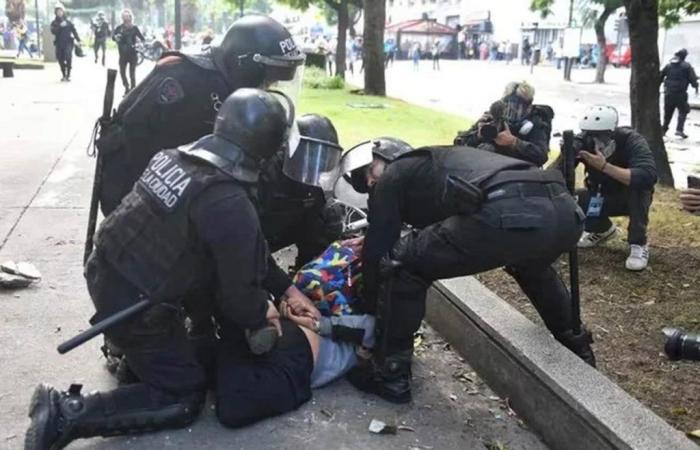Finally, the Buenos Aires Legislature approved the Reiterance Law this Thursday promoted by the former mayor of Vicente López and current Head of Government of CABA Jorge Macri. The Law is a modification to the Buenos Aires Criminal Procedure Code and was approved by the ruling party and allies by 36 positive votes and 21 negative votes.
Jorge Macri had sent the project in March of this year with the objective of “harnessing penalties with a more severe criterion of justice for people who commit crimes again.” Four weeks ago it was discussed in the parliamentary Justice and Constitutional Affairs Committees and in record time it was approved on the floor.. “The Legislature approved the Reiterance law: a repeat offender awaits sentencing in prison. Kirchnerism and the Left Front voted against,” said the president of the Legislature, Clara Muzzio, once the controversial Law was approved.
“The repetition already exists with known consequences in the province of Mendoza and now they intend to impose it in national and CABA legislation. Unlike “recidivism,” which aggravates the penalty or imposes preventive detention and an effective sentence from the outset.when one has already been sentenced to prison for another crime, repetition operates when a person, accused of a crime, has other previous processes in which he has not been convicted,” he explains to Tiempo. María del Carmen Verdú, head of CORREPI (Coordinator against Police and Institutional Repression), one of the more than forty organizations that oppose Jorge Macri’s Law.
The lawyer specialized in human rights points out that a person can end up in prison “even when those previous cases have been archived, dismissed or the acquitted person acts as an aggravating factor and determines the inescapable prison.” Finally, Verdú emphasizes that “if a person is apprehended in a mobilization, then released and the case does not prosperin an eventual second arrest must remain in preventive detention throughout the processeven when it is a releaseable crime.”
From Unión por la Patria they reject this project and consider that it is something that, in practice, will not be able to be applied. because It is unconstitutional. “The most serious problem with this law is that it confuses the right to security that the State has to provide with the smoke bombs that Macri wants to sell to citizens because he is not being efficient when it comes to guaranteeing a security policy.” Seriously,” said UxP Buenos Aires deputy Claudia Neira during the session.
For the legislator, the Buenos Aires government “holds on to an institute of the Procedural Code such as repetition, they force it and make it unconstitutional. It is something that will not even be able to be applied. And if they apply it, it will be a disaster because they did not take care of having a Penitentiary Service or having prisons before. And on top of that, now they are going to aggravate the situation even more by putting detainees in containers, which the neighbors ask to please not put them in the police stations in their neighborhoods.
For the Buenos Aires legislator FIT, Mercedes Trimarchi, this Law increases persecution and criminalization, “especially of social activists, street vendors. There is even a particular hostility toward immigrants because mere suspicion is allowed, so they quickly intervene to demand deportation, which is very serious.”
The deputy, who assumed her seat this Thursday, highlights that the discussion that took place around the debate on the Law caused the union of different sectors from different political spaces: “It is very good what was put together around the rejection of this reform of the Code with the human rights organizations, with the different blocks of the opposition and above all the social and political organizations, given that this Law is in line with the far-right national government which is to legalize something that is already being done, which is persecution and criminalization.”
When asked if They are going to judicialize the Law by presenting some legal resourceTrimarchi said that “yes, that possibility will surely arise, linked to the human rights organizations that we are going to accompany, but we believe that the most important thing has to do with the dissemination that can be done and the social rejection, the more massive it is, “the less political and social support it will have to be applied.”


